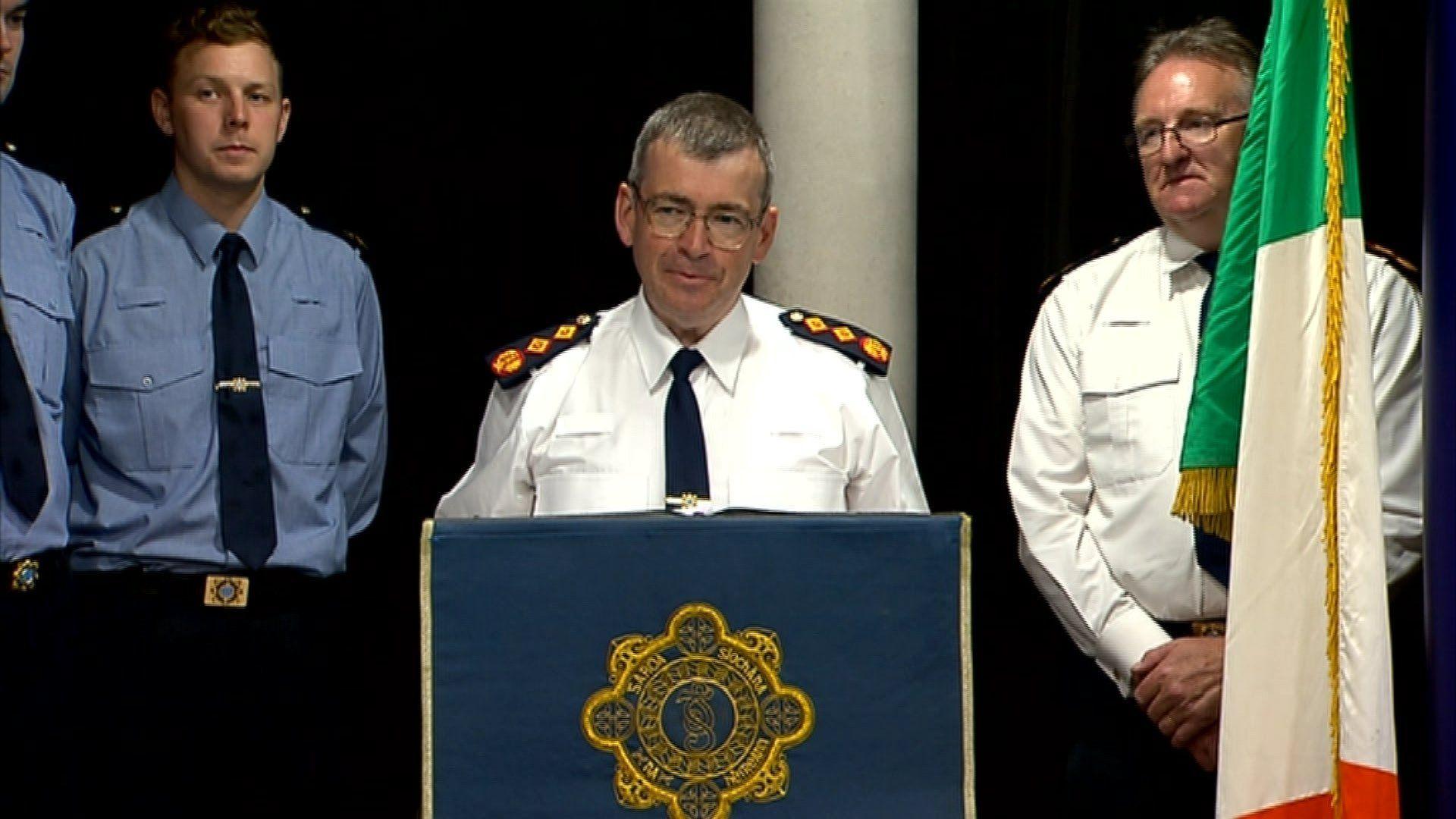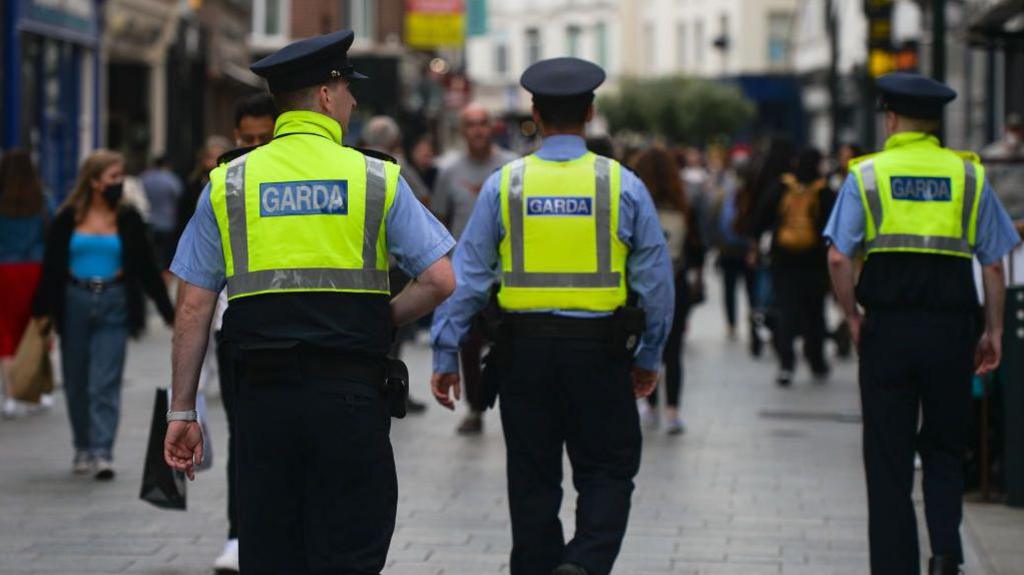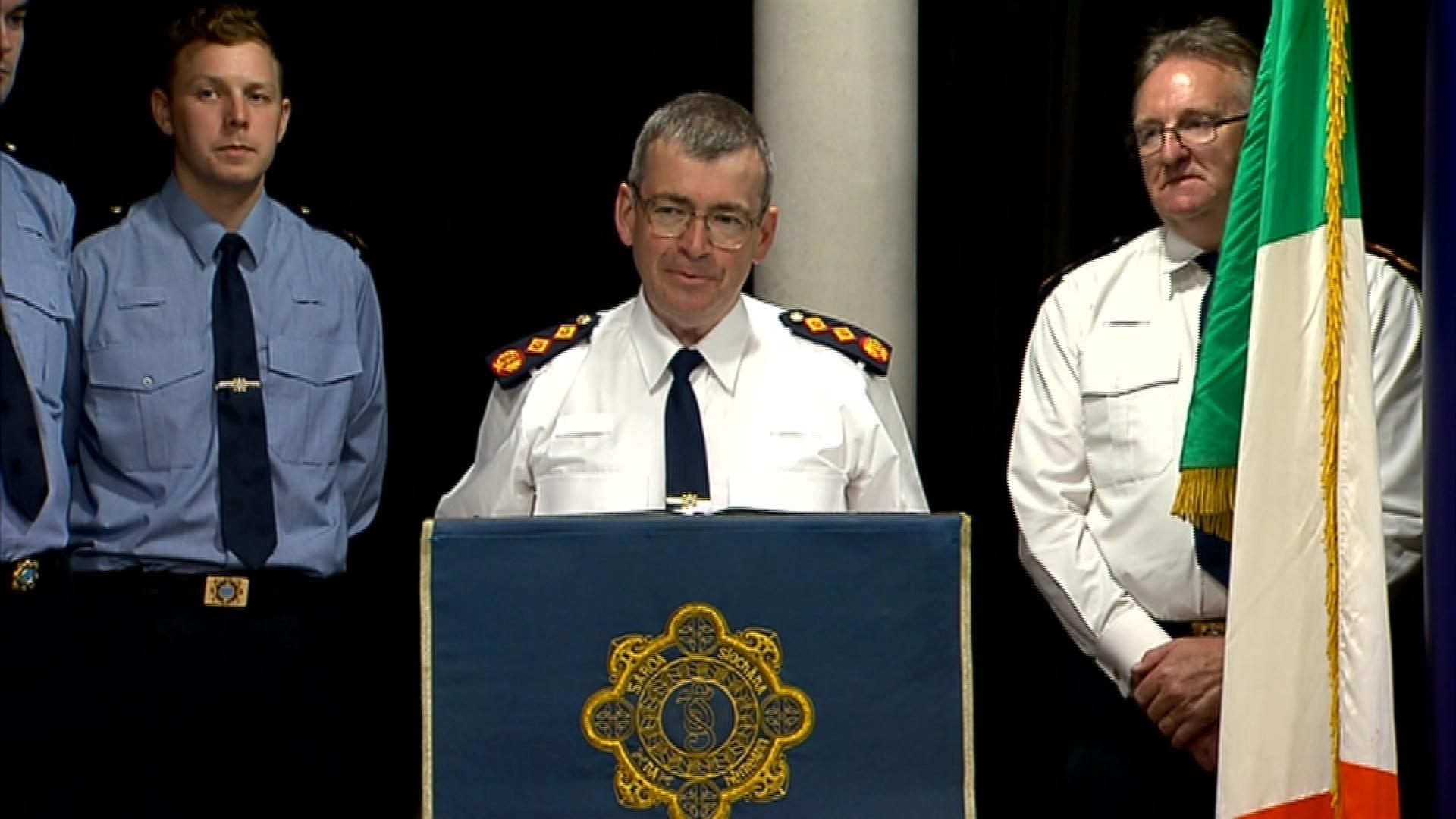No confidence vote 'a bitter blow' - garda chief

Belfast native Drew Harris has led the Republic of Ireland's police force for five years
At a glance
Irish police officers express their disapproval of their boss in a vote
Drew Harris has led An Garda Síochána (Irish police force) for five years
The vote follows discontent over working conditions, including rotas
- Published
A vote of no confidence in Garda Commissioner (head of the Irish police force) Drew Harris has been passed by the Garda Representatives Association (GRA).
The association, which represents rank and file members of the force, has been in dispute with Mr Harris over rota changes and other working conditions.
The vote of no confidence was passed by 98.7% in favour to 1.3% against.
Mr Harris, who is from Belfast, described the GRA's vote of no confidence in his leadership "a kick in the teeth" and "a bitter blow".
Irish Minister for Justice Helen McEntee has expressed confidence in Mr Harris.
He reiterated he would not resign and said there was no comparison between his position and that of former PSNI Chief Constable Simon Byrne, who resigned after a vote of no confidence from the Police Federation of Northern Ireland last week.
The vote comes nine days after Simon Byrne faced criticism by several policing bodies for his handling of a number of controversies.
Mr Harris, who is a former PSNI deputy chief constable, took up his role as Garda commissioner, in the Republic of Ireland, five years ago this month.
The vote of no confidence was held against a backdrop of discontent among gardaí (Irish police) over working patterns, problems with recruitment, retention, training and staff morale.
Of 10,803 members asked: "Do you have confidence in the Garda Commissioner? Yes or No", a total of 9,013 voted no confidence in Mr Harris, with 116 voting confidence in him.

Drew Harris was sworn in as Garda commissioner in September 2018
Mr Harris said the vote was personally against him in the way it was framed by the GRA but insisted he would not extend the present roster and a different roster would be introduced as planned in seven weeks.
Since last year, the Garda Representatives Association (GRA) has been in a dispute with the commissioner over planned changes to officers' rosters.
Mr Harris had announced plans to revert to pre-pandemic rotas, under which officers would return to six-day working weeks, followed by four days off.
This proved unpopular with rank and file gardaí, many of whom want to keep Covid-era rotas, where shifts are longer but they work four days on and four off.
Last year, the GRA said the six-day week would mean 47 additional days on duty per year for some members, increasing commuting and childcare costs.
After months of negotiations with the GRA, Mr Harris said last month that he was proceeding with the six-day rota, despite the objections.
A GRA spokesman described the decision as "the last straw".
When the GRA began the no confidence ballot process last month, Mr Harris said the vote was "unnecessary" and would not be a measure of his performance.
Instead, he insisted his performance would be measured on his record on solving and preventing crime.
"I'm not a politician, I'm a commissioner leading a police service," he told Irish broadcaster RTÉ in August., external

Many officers object to Mr Harris's plan to return to pre-pandemic six-day rotas
The GRA was formed in 1978 and this is the first time that it has held a vote of no confidence in a garda commissioner.
Mr Harris is the only person appointed from outside the force to lead An Garda Síochána in its 100-year history.
Prior to his appointment in June 2018, he had served in Northern Ireland for 34 years.
He was 18 years old when he joined the Royal Ulster Constabulary (RUC), the Northern Ireland force which preceded the current PSNI.
His father Alwyn Harris, who was senior member of the RUC, was killed in an IRA car bomb attack in 1989.
Drew Harris was initially appointed for a five-year term as Garda commissioner, but in February 2022 he was granted a two-year extension to his contract, external.
The extension, proposed by Ms McEntee and approved by other cabinet ministers, paved the way for him to stay in post until September 2025.
Related topics
- Published3 September 2018
